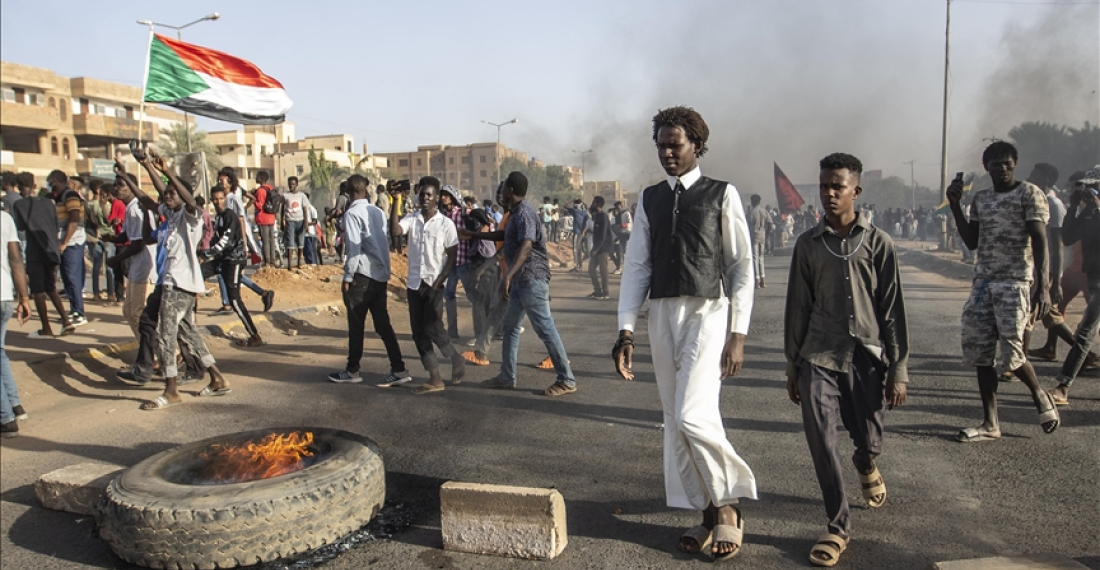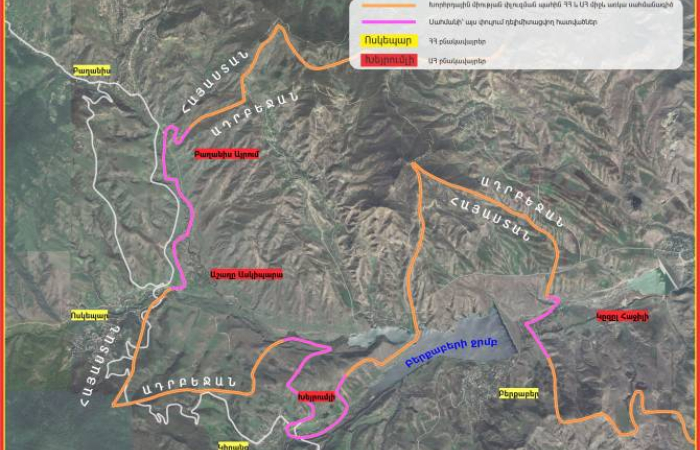Sudan is suffering one of the worst humanitarian crises in recent history after nearly a year of war, the United Nations has warned.
Fighting between the army, headed by General Abdel Fattah al-Burhan, and the paramilitary Rapid Support Forces (RSF), led by Mohamed Hamdan Dagalo, since last April has killed tens of thousands of people, as the threat of famine looms amid international inaction.
“By all measures – the sheer scale of humanitarian needs, the numbers of people displaced and facing hunger – Sudan is one of the worst humanitarian disasters in recent memory,” Edem Wosornu, director of operations at the UN Office for the Coordination for Humanitarian Affairs (OCHA), said on Wednesday (20 March).
“A humanitarian travesty is playing out in Sudan under a veil of international inattention and inaction,” Wosornu told the UN Security Council on behalf of OCHA head Martin Griffiths.
According to the UN, the conflict has led to more than eight million people being displaced.
In early March, the Security Council called for an immediate ceasefire during Ramadan and urged better access to humanitarian aid. However, the ceasefire was not realised due to disagreements between the warring sides.
More than 18 million Sudanese are facing acute food insecurity – 10 million more than at this time last year – while 730,000 Sudanese children are believed to be suffering from severe malnutrition.
Griffiths warned the Security Council last week that “almost five million people could slip into catastrophic food insecurity in some parts of the country in the coming months”.
The deputy executive director of the UN World Food Programme (WFP), Carl Skau, also said on Wednesday, “If we are going to prevent Sudan from becoming the world’s largest hunger crisis, coordinated efforts and joined-up diplomacy is urgent and critical.”
The meeting of the UN Security Council was held after OCHA submitted a "white note" in accordance with resolution 2417 of 24 May 2018, which requested the Secretary-General to report swiftly when “the risk of conflict-induced famine and wide-spread food insecurity” occurs. Over the last 11 months, Sudan has been grappling with the devastating humanitarian consequences of fighting that erupted on 15 April 2023 between the Sudanese Armed Forces (SAF), headed by General Abdel Fattah al-Burhan, Sudan’s military leader and chairperson of the Transitional Sovereignty Council, and the Rapid Support Forces (RSF), a paramilitary group led by General Mohamed Hamdan Dagalo (known as Hemeti). As at 15 March, more than 14,790 people had reportedly been killed since the onset of the conflict, according to the Armed Conflict Event and Data Centre (ACLED), a non-governmental organisation (NGO) that collects conflict-related data.
The OCHA white note says that nearly 18 million people across Sudan are currently facing acute food insecurity, described by the Integrated Food Security Phase Classification (IPC)—used by relief agencies to measure hunger levels—as crisis level conditions or worse (IPC Phase 3 or above). This is the highest recorded share of people facing this level of food insecurity during Sudan’s harvest season (October to February). Of this total, five million people are currently experiencing emergency levels of food insecurity (IPC Phase 4), some of whom may face catastrophic conditions (IPC Phase 5) over the coming months, particularly in West and Central Darfur, according to the white note. Referring to the IPC’s December 2023 projection, the note says that the most highly food insecure populations in Sudan have been identified in areas where conflict has been particularly intense, including in Al Jazirah, Darfur, Khartoum, and Kordofan.
The white note further points out that vulnerable groups—including women, children, and internally displaced persons (IDPs)—remain at particular risk. It notes that approximately 730,000 children in Sudan, including over 240,000 in Darfur, are projected to suffer from severe acute malnutrition, the most severe form of childhood malnutrition. Conditions are especially dire in hard-to-reach areas, which host nearly three quarters of the country’s 4.7 million acutely malnourished children and pregnant or breastfeeding women in urgent need of support, according to the white note.






